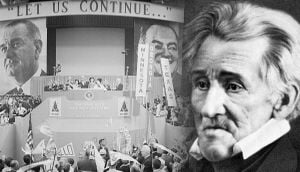The Israel-Hezbollah conflict has once again captured the world's attention as both sides engage in intense military actions, evoking strong responses and concern from international communities. The timeline of events has seen tragic losses and complex geopolitical maneuvers, highlighted by significant reactions from various nations.
The recent hostilities escalated sharply when Israel initiated airstrikes on Hezbollah positions along the Lebanese border, resulting in devastating casualties. This operation sparked protests worldwide, particularly among Palestinian supporters who rallied against the perceived aggression. Demonstrators took to the streets in notable cities, showcasing the deep divisions within the international community.
According to reports, Israeli airstrikes on Lebanese territory targeted Hezbollah military bases following the group's rocket attacks on Israel. These strikes have reportedly resulted in extensive destruction and numerous fatalities, with the Lebanese health ministry stating the death toll has risen alarmingly.
Meanwhile, Hezbollah’s response has been fierce, with leaders vowing to retaliate against what they deem unacceptable acts of aggression from Israel. The group's commitment to ‘resistance’ against Israel signifies intentions not just to defend itself but to escalate confrontational actions, which complicates the already fraught situation.
The conflict's effects ripple beyond the immediate battlefield. Global leaders have begun to weigh in, reacting to these events with calls for restraint and urging both parties to engage in dialogues instead of the unending spiral of violence. International organizations, including the United Nations, have echoed this sentiment, emphasizing humanitarian needs and the importance of ceasefires.
Several nations have offered mediation services, appearing eager to prevent what could escalate to another full-blown regional war. Countries like Qatar and Oman have expressed their willingness to assist as intermediaries, emphasizing the necessity of maintaining open channels of communication to avoid miscalculations.
The United States, traditionally Israel's ally, has found itself at the center of the discourse as well. Following the latest tensions, the White House called for all parties to avoid actions leading to greater violence and emphasized the U.S. commitment to Israel's right to defend itself. Yet, critics argue this stance lacks adequate support for humanitarian needs, calling for a more balanced approach to the crisis.
Political analysts argue the intensity of these hostilities is symptomatic of broader geopolitical trends. Experts note recent shifts in regional alliances and the power dynamics at play, which inevitably draw the global community's attention. The involvement of Iran backing Hezbollah adds yet another layer, complicates negotiations, and raises the stakes even higher.
While diplomatic overtures are attempted, on-the-ground realities depict a vastly different story. Civilians continue to bear the brunt of violence, with numerous reports of displaced families and struggling communities under siege. Aid organizations grapple with delivering necessary resources amid the chaos, as borders tighten and areas become increasingly dangerous.
One considers the tragic irony of it all—while some discuss terms of peace and ceasefires, for many, the conflict resonates on personal levels, with lives shattered and futures uncertain. Social media has amplified this narrative, with images and stories of suffering civilians gaining traction globally, creating mounting pressure on world leaders.
The humanitarian crisis has prompted calls from various humanitarian organizations demanding immediate action to alleviate the human suffering witnessed by millions. Aid to affected populations is dependent on access routes remaining unobstructed, yet military actions often inhibit such deliveries.
Protest movements within and outside the region are drawing support for humanitarian efforts as well. Solidarity marches and rallies occur, amplifying the voices calling for action and drawing attention to the desperate conditions within conflict zones.
Despite efforts to slow down the violence, the dangerous back-and-forth between Israel and Hezbollah signifies the possibility: this is far from over. Both sides remain entrenched, and their rhetoric suggests resolutions may be hard to come by. Observers remind us of the necessity for sustaining dialogue as the only means to achieve lasting peace.
So, where do we go from here? With both military actions likely to continue and calls for peace growing louder, international eyes remain fixated on this conflict. History teaches us of cyclical violence and deep-rooted grievances; the question is whether any party is willing and ready to break this pattern.
For all the commotion, voices advocating for peace must persist. The recent developments urge us to keep alive the hope for compromise and respect for human dignity, reminding us all of the broader narrative threading through this tumultuous path: the quest for peace, justice, and coexistence.



